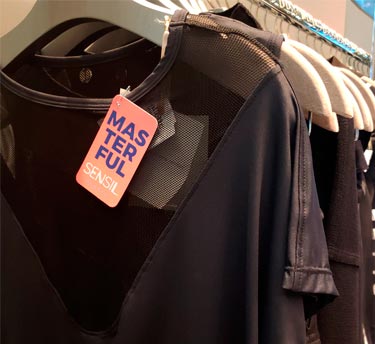How to know if you are making sustainable choices ?
Nilit
The answer is not simple, but if a product is trackable through the production chain, that can make you feel more certain. Fashion and textile industries are aware that consumers have been demanding sustainability information at the same level as quality and comfort. And they are responding.
More often than not, society is hearing the discussions about the massive impact that textile production can have on the environment. Easy access to inexpensive and highly promoted “fast fashion” both in the store and on line has greatly impacted the production of textile products. Technology can be tricky. It helps people easily access whatever they want and purchase with no challenges at all, but it also creates more demanding consumers armed with information and education.
This is like a “ripple effect” or a “good behavior chain” while friends, celebrities and influencers expose their consumption choices and justify them as a good decisions. These choices are usually presented as “sustainable” or “eco-friendly,” specifically highlighting the endorser’s concern for the future of our planet. Thus, sustainability has become a popular word and a very engaging one as people became more curious and excited about the concept.
But what does sustainability really mean, and what makes a product sustainable? Well, sustainability can be defined as the collection of practices and actions that focuses on meeting the needs of the present without compromising the ability of future generations to meet theirs. Therefore, it is easily assumed that practices that do not harm the environment and help preserve our natural ecosystems can be labeled as sustainable. True. However, considering that most consumer goods have a complex production chain, it is often hard to track sustainability through all the processes in order to claim that a product is actually sustainable.
One good example is the organic movement that took over the food industry. People started to be more concerned about their health and the consequences that bad choices could do to the planet. Bad choices could be linked to cheap food that is easily purchased with little thought given to the origins of the food itself.
Recently, the origins of food became as important as the quality. Good origins came to refer to chemical free food, small/local producer support, and many other intrinsic aspects of food, way beyond simply the taste. That is where sustainability finds its place– in educated consumers who become more aware and conscientious regarding their choices. People want to know what they are purchasing and, more importantly, if they are making a smart decision for themselves, their families, their communities, and their future.
Fashion and textile industries are similarly complex with elaborate production chains that must be sustainable from the choice of raw materials to the end products found in stores. A label attached to a specific garment simply stating that a product is sustainable isn’t enough anymore. People crave in depth information and want to understand the background of each product they’re buying in order to have peace-of-mind and to ensure alignment with their sustainability core principles. This requires effective tracking through the entire value chain.
Truth is, tracking sustainability is a very difficult challenge but it is not impossible. Companies are raising the sustainability flag as part of their final product value, exposing to consumers the sources of raw materials and manufacturing processes in order to be as transparent as possible, raising credibility with their stakeholders and building connections to their brands.
The textile industry has been responsible for significant damage to our planet’s water and environmental resources, not just from the production processes, but also for making garments with very short useful lives as well. Sensil® is committed to leading a movement towards improving the textile industry’s footprint in the environment. More sustainable raw materials and environmentally responsible production combined with long-lasting quality will result in a garment that is significantly more sustainable and appealing to those consumers who are actively making more thoughtful choices about the clothing they buy.
Sensil® is working diligently to provide the textile industry with high-quality premium Nylon performance and fashion fabrics that address the industry’s pressing issues with water use, waste reduction, use of recycled and biobased inputs, and ecosystem impact. With thoughtful design, clothing made with these innovative fabrics will last for years. Sensil® hangtags guarantee authenticity and transparency and provide the information diligent consumers want to support their purchase decision. People know they are doing good if they have the correct information. And that is a very good place to start.













